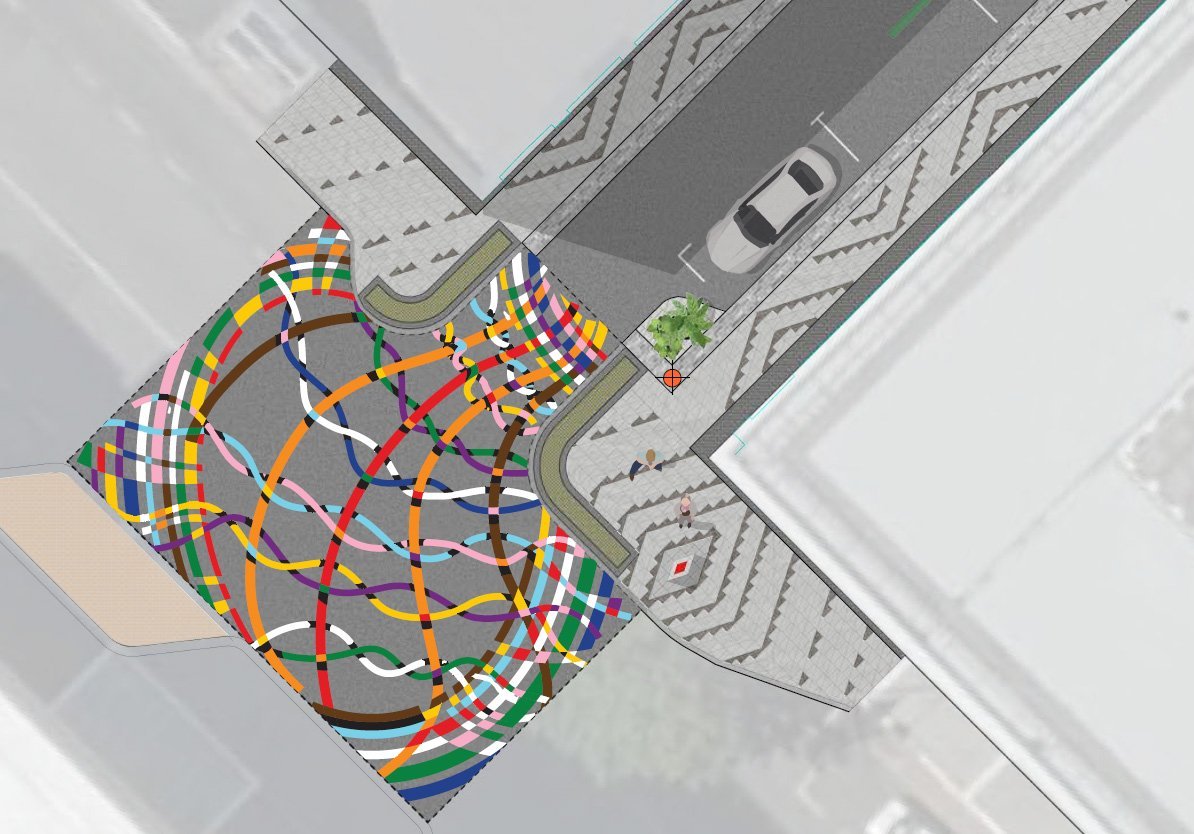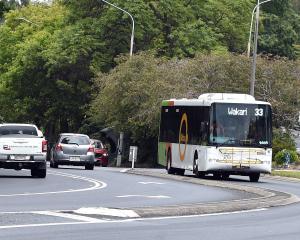
Other changes include cutting paved areas by about 60%, reducing the amount of artistic lighting, having less planting and re-using light poles instead of buying new ones.
An unfinished design was presented to city councillors in December, but a contractor’s cost estimate came in higher than the $1.5 million budget.
The scope of the project was then revised by the Dunedin City Council ‘‘to still achieve a balance between functionality, enhanced amenity, cultural narrative, and cost’’.
An update for councillors ahead of a meeting next week said rainbow crossings envisaged at each end of Bath St had been removed, as they could not be delivered ‘‘due to the budget envelope’’.
The cost of their installation had been estimated at $279,000.
The council signalled it might yet create a home for them in the central city.
‘‘Staff will continue to explore opportunities to install the crossings when undertaking other roading infrastructure upgrades in the immediate vicinity,’’ a report for councillors said.

A final design of rainbow crossings and projected costs are expected to come back before the council by the end of this year.
The revised plan for Bath St included ‘‘refocusing’’ paving around the entrances for or spaces opposite food and beverage businesses.
There would also be a reduction in the amount of proposed artistic lighting projections.
Suitability of the crossings’ initial design had been questioned anyway, and property owner Phil Day criticised the council for ‘‘wokeism’’.
‘‘Small minorities seem to have a lot of say,’’ he said at a December meeting.
Proposed rainbow crossings had been trumpeted by the council as drawing on mana whenua values and what it described as queer identity and the taonga of tuna.
‘‘Just as having healthy waterways and riparian environments are key to the survival of tuna, visible expressions of identity and representation are important to the safety and inclusion of the queer community in the broader Dunedin community.’’
However, the council signalled in December cuts could be coming and it particularly noted ‘‘this budget is put under more pressure by the increase of scope of integrating the rainbow crossing into the project’’.
Council climate and city growth general manager Scott MacLean seemed to suggest back then expectations might be unrealistic.
‘‘We have a very tight budget, so any of those additional elements, other than the construction of the road, we will do our best to fit in, but we may not be able to accommodate any,’’ he told the council.
Dunedin Pride chairperson Meihana Pōtiki-Grayling said this week the council should show its support.
‘‘Bath St has historically been a place of violence against queer people, so having the crossing would allow us to reclaim a space where we have been harmed.’’
Otago regional councillor Elliot Weir said people would lose faith in the city if it failed to follow through on plans and promises.
‘‘It requires real effort, time and money to make our city a place people want to grow up in, move to, or stay after their studies,’’ Cr Weir said.
‘‘To back down from that long-term investment when the going gets tough, is to forfeit that brighter future for the city.’’
City councillor Mandy Mayhem said at the December council meeting she supported a rainbow crossing, but she had been contacted by people worried the initial design would have been distracting for those with balance and sensory conditions.
Staff were then asked by the council to engage directly with the disability sector and ensure NZ Transport Agency Waka Kotahi was comfortable with a revised design.
A constructive meeting was held between the project designers and representatives of the disability sector, the council said.
‘‘Further time is required to refine these designs and undertake further engagement with the disability sector and rainbow community to ensure the kaupapa and mana of the project remain intact and that concerns raised by the disability community have been adequately addressed.’’











